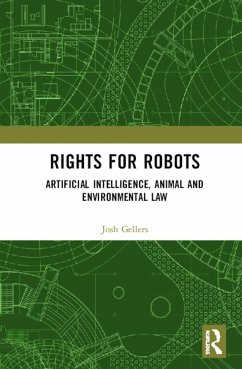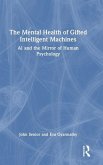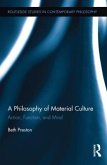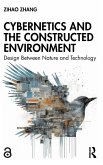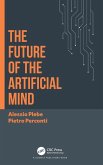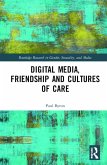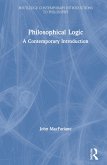Bringing a unique perspective to the burgeoning ethical and legal issues surrounding the presence of artificial intelligence in our daily lives, the book uses theory and practice on animal rights and the rights of nature to assess the status of robots. Through extensive philosophical and legal analyses, the book explores how rights can be applied to nonhuman entities. This task is completed by developing a framework useful for determining the kinds of personhood for which a nonhuman entity might be eligible, and a critical environmental ethic that extends moral and legal consideration to nonhumans. The framework and ethic are then applied to two hypothetical situations involving real-world technology-animal-like robot companions and humanoid sex robots. Additionally, the book approaches the subject from multiple perspectives, providing a comparative study of legal cases on animal rights and the rights of nature from around the world and insights from structured interviews with leading experts in the field of robotics. Ending with a call to rethink the concept of rights in the Anthropocene, suggestions for further research are made. An essential read for scholars and students interested in robot, animal and environmental law, as well as those interested in technology more generally, the book is a ground-breaking study of an increasingly relevant topic, as robots become ubiquitous in modern society. The Open Access version of this book, available at http://www.taylorfrancis.com/books/e/ISBN, has been made available under a Creative Commons Attribution-Non Commercial-No Derivatives 4.0 license.
Hinweis: Dieser Artikel kann nur an eine deutsche Lieferadresse ausgeliefert werden.
Hinweis: Dieser Artikel kann nur an eine deutsche Lieferadresse ausgeliefert werden.
"When it comes to responding to others-whether naturally occurring or artificially made-human beings have granted to themselves the right to draw the line between who counts as another moral/legal subject and what remains a mere object or thing. In this remarkable new book, Joshua Gellers challenges the legacy and logic of this decision-making, demonstrating how this exclusive compartmentalizing of the world produces what are arguably capricious and unjustifiable decisions that matter for those of us who have been empowered to make these distinctions as well as those who have been its victim. It is a timely and insightful investigation that is necessary as we face the challenges of environmental degradation, extinction of species, and the creation of artificial life. The Rights of Robots is not just about machines; it is about us, our world, and our shared future."
David J. Gunkel, Distinguished Teaching Professor, Department of Communication, Northern Illinois University - USA
"This book offers a timely, well-written, sophisticated and thoughtful engagement with the increasingly non-negotiable challenge of re-imagining human moral and legal obligations towards nonhumans. Focusing on robots in particular, and bringing his analysis into direct conversation both with the rising global power of nature/animal rights movements and with trans-disciplinary insights into more-than-human agencies, Gellers explores the process by which determinations of who (or what) deserves rights are made. In the course of his analysis, he charts a fascinating path towards a fresh approach to the attribution of rights in a posthuman ecology, and while robots might be central to Gellers's concerns, his work ultimately also invites wider critical reflection on the kinds of active kin-making now urgently needed for the emergence of a more compassionate, inclusive and eco-critically intelligent juridical order."
Anna Grear, Professor of Law, Cardiff University; Founder and Editor-in-Chief of the Journal of Human Rights and the Environment
"In this groundbreaking book, Professor Gellers examines the implications of the crumbling boundaries between "human" and "nonhuman" and makes compelling philosophical and legal analogies and distinctions in considering legal personhood protections for robots, animals, and nature. The book will inform scholars and students across many disciplines and inspire much-needed collaboration in the transition from the binary Anthropocentrism of the past to a more nuanced and inclusive vision for the rights of nonhumans in the future. Drawing on his background as an influential interdisciplinary scholar on environmental rights, Gellers provides fresh and clear insights to help readers navigate this complex landscape of rights for nonhumans and offers valuable guidance in exploring rights for robots in a broad range of contexts."
Randall S. Abate, Rechnitz Family and Urban Coast Institute Endowed Chair in Marine and Environmental Law and Policy, and Director, Institute for Global Understanding, Monmouth University
"I have always had great admiration for, and continue to be inspired by, Professor Joshua Gellers' work. His research is cutting-edge, innovative, and truly interesting in terms of content, approach, methodology and subject matter. Departing from his globally recognised expertise in human rights, environmental law and ethics, and environmental constitutionalism, Professor Gellers embarks in this book on a rather daring exploration of "rights for robots". Within this unchartered domain, he attempts to construct the first elaborate, and thoroughly critical, account of a new multi-spectral framework for determining personhood(s) and a critical environmental ethic. Pioneering in every sense of the word as it is, I suspect that this book marks the beginning of an entirely new field of interdisciplinary enquiry which lies at the interface of human rights, ethics, environmental law, and artificial intelligence, among others. Perhaps even more significantly, this book is a perfect example of the type of truly creative out-of-the-box thinking that we urgently need to embark on if we want to find solutions for the Anthropocene's deepening socio-ecological crisis."
Louis J. Kotzé, Research Professor, North-West University, South Africa, Senior Professorial Fellow in Earth System Law, University of Lincoln, United Kingdom
David J. Gunkel, Distinguished Teaching Professor, Department of Communication, Northern Illinois University - USA
"This book offers a timely, well-written, sophisticated and thoughtful engagement with the increasingly non-negotiable challenge of re-imagining human moral and legal obligations towards nonhumans. Focusing on robots in particular, and bringing his analysis into direct conversation both with the rising global power of nature/animal rights movements and with trans-disciplinary insights into more-than-human agencies, Gellers explores the process by which determinations of who (or what) deserves rights are made. In the course of his analysis, he charts a fascinating path towards a fresh approach to the attribution of rights in a posthuman ecology, and while robots might be central to Gellers's concerns, his work ultimately also invites wider critical reflection on the kinds of active kin-making now urgently needed for the emergence of a more compassionate, inclusive and eco-critically intelligent juridical order."
Anna Grear, Professor of Law, Cardiff University; Founder and Editor-in-Chief of the Journal of Human Rights and the Environment
"In this groundbreaking book, Professor Gellers examines the implications of the crumbling boundaries between "human" and "nonhuman" and makes compelling philosophical and legal analogies and distinctions in considering legal personhood protections for robots, animals, and nature. The book will inform scholars and students across many disciplines and inspire much-needed collaboration in the transition from the binary Anthropocentrism of the past to a more nuanced and inclusive vision for the rights of nonhumans in the future. Drawing on his background as an influential interdisciplinary scholar on environmental rights, Gellers provides fresh and clear insights to help readers navigate this complex landscape of rights for nonhumans and offers valuable guidance in exploring rights for robots in a broad range of contexts."
Randall S. Abate, Rechnitz Family and Urban Coast Institute Endowed Chair in Marine and Environmental Law and Policy, and Director, Institute for Global Understanding, Monmouth University
"I have always had great admiration for, and continue to be inspired by, Professor Joshua Gellers' work. His research is cutting-edge, innovative, and truly interesting in terms of content, approach, methodology and subject matter. Departing from his globally recognised expertise in human rights, environmental law and ethics, and environmental constitutionalism, Professor Gellers embarks in this book on a rather daring exploration of "rights for robots". Within this unchartered domain, he attempts to construct the first elaborate, and thoroughly critical, account of a new multi-spectral framework for determining personhood(s) and a critical environmental ethic. Pioneering in every sense of the word as it is, I suspect that this book marks the beginning of an entirely new field of interdisciplinary enquiry which lies at the interface of human rights, ethics, environmental law, and artificial intelligence, among others. Perhaps even more significantly, this book is a perfect example of the type of truly creative out-of-the-box thinking that we urgently need to embark on if we want to find solutions for the Anthropocene's deepening socio-ecological crisis."
Louis J. Kotzé, Research Professor, North-West University, South Africa, Senior Professorial Fellow in Earth System Law, University of Lincoln, United Kingdom

